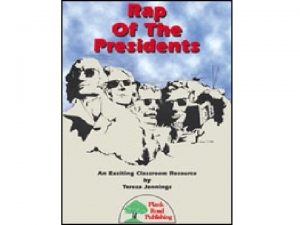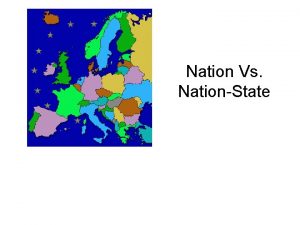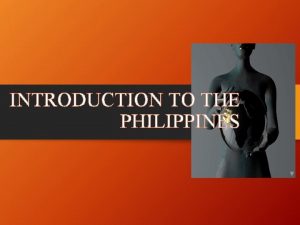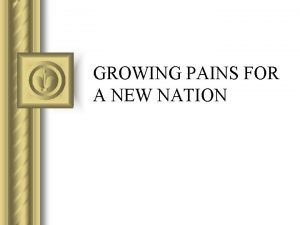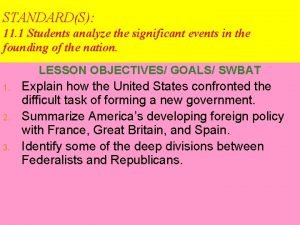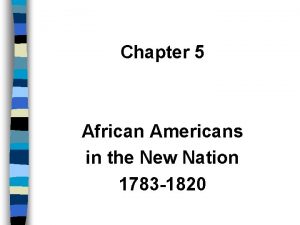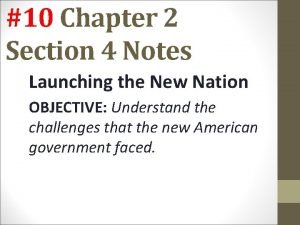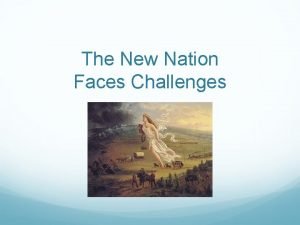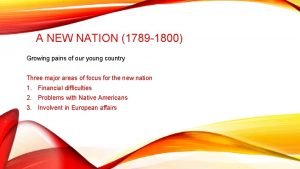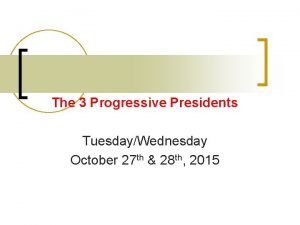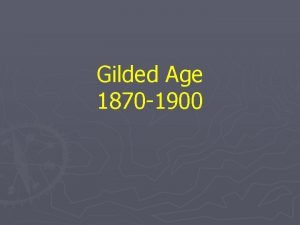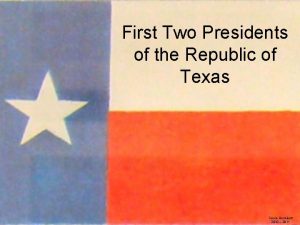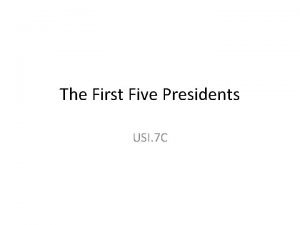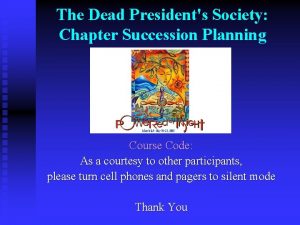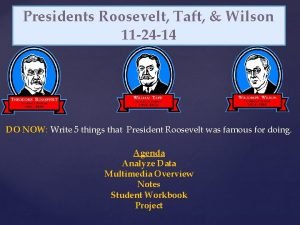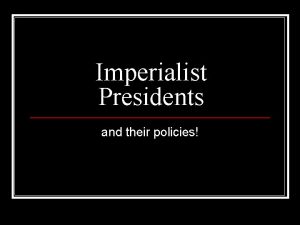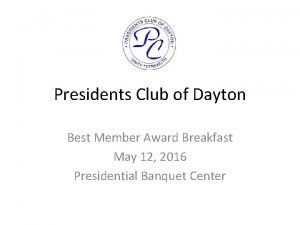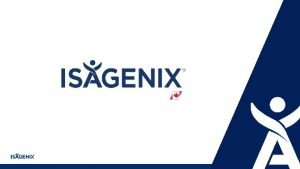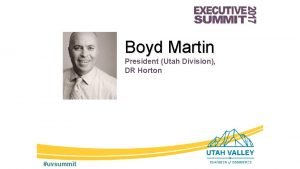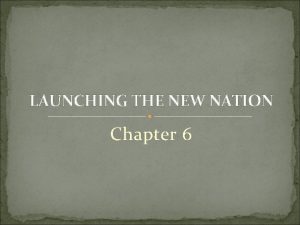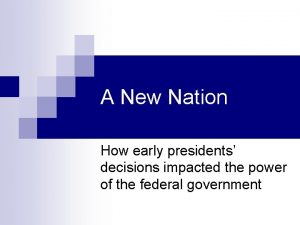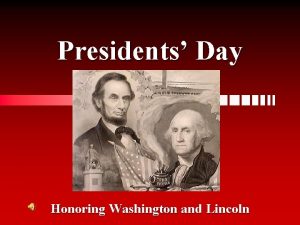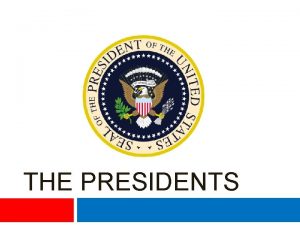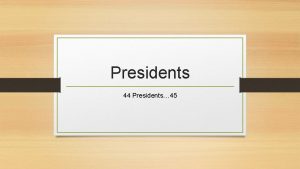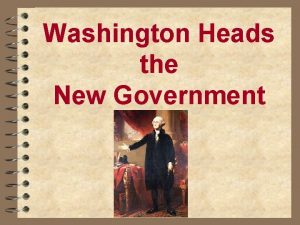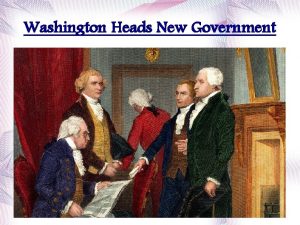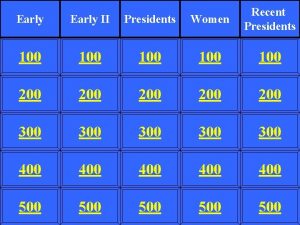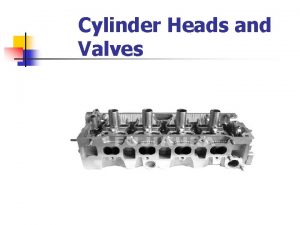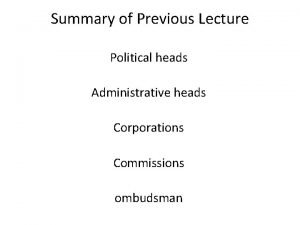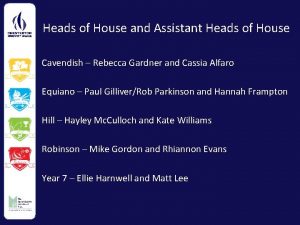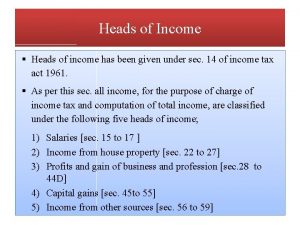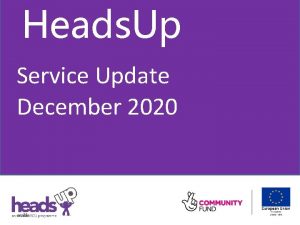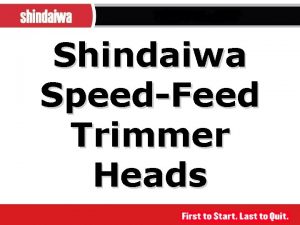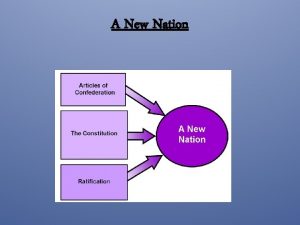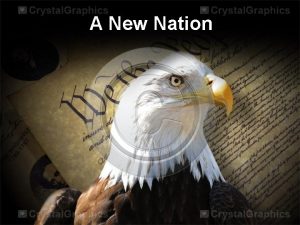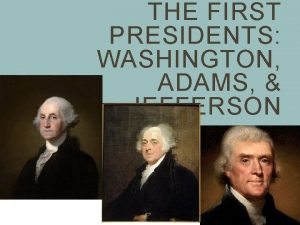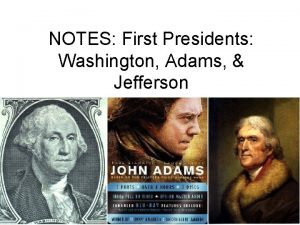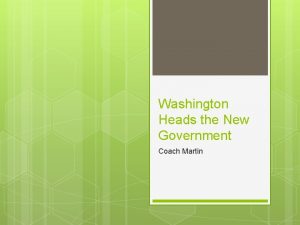EARLY PRESIDENTS WASHINGTON HEADS THE NEW NATION Washington






















- Slides: 22

EARLY PRESIDENTS

WASHINGTON HEADS THE NEW NATION

Washington = 1 st POTUS! • Unanimous vote in electoral college → George Washington as 1 st President of the United States (POTUS) • Washington reluctant and nervous “About ten o’clock I bade adieu to Mount Vernon, to private life, and to domestic felicity; and with a mind oppressed with more anxious and painful sensations than I have words to express, set out for New York… with the best dispositions to render service to my country in obedience to its call, but with less hope of answering its expectations. ” - The Diaries of George Washington

New Nation Problems • The new Constitution set up a basic foundation for a national government… still work to be done. • Expanding the judicial branch with a court system? • Expanding the executive branch? • Economy and debt? “We are all in wilderness, without a single footstep to guide us. ” - James Madison

Expanding the Judicial Branch • Constitution allowed for a Supreme Court and said Congress could establish lower courts… no other details. • Judiciary Act of 1789 – created the judicial structure for the United States • 1 Supreme Court – 1 chief justice and 5 associate justices • 3 federal circuit (appeals) courts • 13 federal district courts – 1 per state • Re-emphasized the supremacy clause in the Constitution - federal laws are the “supreme law of the land” (above state laws) John Jay, 1 st Chief Justice

Expanding the Executive Branch • Constitution allowed for a POTUS and VP… no other details. (Adams = VP) • Cabinet – a group of chosen officials to advise the POTUS and VP Executive Department Job Secretary under Washington Dept. of State Manage foreign affairs Thomas Jefferson (TJ) Dept. of War Manage militia Henry Knox Dept. of the Treasurer Manage currency, national budget, and Alexander Hamilton debts Attorney General Chief national lawyer to represent the national government in court cases Edmund Randolph

Hamilton’s Economic Plan • Utilize the strong national gov’t and pay off debt (national and state)!

Hamilton’s Economic Plan • Proposed a Bank of the United States – national bank proposed by Hamilton • Why? • Coin national currency • Assume (take on) the state debts from the war • US could pay back debt owed - national and state - to make the new federal gov’t seem legit and credible to Americans • Give the US financial stability and credibility abroad • Where would the money come from? • Federal taxes (excise and tariff) • Wealthy investors through treasury bonds

Opponents of Hamilton’s Economic Plan • TJ, Anti-federalists, and Southerners • Some southern states had already paid off debts and didn’t want to be taxed to pay off the debts of the northern states • Benefited the rich at the expense of the average person who couldn’t pay the new taxes • Relied too much on wealthy investors and business → unhealthy relationship between gov’t and business • The Constitution didn’t say the creation of a national bank was allowed! The federal government didn’t have the power to do this.

What’d I Miss • After the Revolution, TJ spent 5 years living in France (1784 -1789) as the Minister to France. He returned right as the Constitution was taking effect. • TJ LOVED French culture and was sometimes called a “Francophile” (in a derogatory way). • In the US, TJ lived in VA on his estate called Monticello where many crops (even a vineyard) were managed by many slaves. • TJ’s new position is the Secretary of State, which fit him because he had experience negotiating with European governments (France especially). • TJ soon learns of Hamilton’s economic plan and is immediately opposed to it. • https: //www. youtube. com/watch? v=not. Ju. FGXQ 9 w

Constitution Interpretations Strict Interpretation of Constitution Loose Interpretation of Constitution • Belief that the Constitution forbids anything that is not explicitly allowed. allows for everything, unless explicitly forbidden. • Limits the power of federal government • TJ – “No national bank because the Constitution doesn’t say you can establish one!” • Expands the power of federal government • Hamilton – “Yes national bank because the Constitution doesn’t say you can’t establish one!”

Cabinet Battle #1 • Argument between TJ and Hammy with Washington presiding (MC-ing) • Debating the constitutionality and necessity of a national bank • At the end, Washington and Madison tell Hamilton that he needs to find a compromise with TJ and the South to get their representatives in Congress to vote to approve the national bank… so TJ, Hamilton, and Madison meet for dinner to try to find a compromise.

National Bank Approved! • 1790 • Compromise – National capital moved to a southern location to please TJ and southerners • NYC → Philadelphia → District of Columbia (by 1800) • Virginians (TJ) and others believed they could have more influence on the federal gov’t if it was geographically closer.

The Room Where it Happens • Hamilton compromises with Jefferson and Madison by moving the capital to VA in exchange for the passage of his financial plan. • Burr realizes that political dealings between just a few men (“Two Virginians and an immigrant, ” not even Washington) are influencing Congressional votes and national events. • Burr is two things: • Angry that NYC is no longer the capital of the US (he is from NY) • Jealous - wants to be in on the action… foreshadowing the beef between him and Hamilton

Divisions Create Political Parties • Two-party system – a political system dominated by 2 main parties

Whiskey Rebellion • 1789 – Hamilton convinced Congress to pass a tariff on imported goods from Europe = $$$ for federal gov’t • Tariff – tax on imported goods to encourage the purchase of American goods • Raised a lot of $ but Hamilton wanted more!

Whiskey Rebellion • Congress passed an excise tax on the manufacture of whiskey • Excise tax – tax on a product’s manufacture, distribution, and/or sale • Usually on popular items that will be bought regardless of price

Whiskey Rebellion • Most whiskey manufactures were small frontier farmers whose major crop was corn. • Corn is too bulky to carry east across the Appalachian Mountains to sell → made whiskey from corn - easier to transport and could sell for more • Whiskey = main source of money for frontier farms → FURIOUS about excise tax they had to pay to manufacture whiskey

Whiskey Rebellion • 1794 - corn farmers in western PA refused to pay excise tax • Beat up federal marshals • Threatened to secede from (leave) the US • Hamilton saw an opportunity for the new federal government to show its strength! • Washington (half way) and Hamilton (all the way) and 15, 000 militiamen reported to the area • Rebels scattered • No one injured/killed!

Whiskey Rebellion • Effects of the Whiskey Rebellion • Showed the new national government’s power • To tax and gain money • To enforce federal laws (even by actual force if needed) • To handle uprisings quickly and safely • Reflected national unrest • The new nation is still just barely surviving • Many citizens with very different beliefs (Dem-Reps vs Feds) under 1 government – CONFLICTS!

Hamilton Federalist Jefferson VIDEO Party Democratic-Republican Strong central government Federal Shared power with states Government Republic lead by well educated, wealthy elite Who Should Democracy of virtuous farmers Lead? and tradespeople Uneducated mob rule Fears Absolute power in one ruler Loose interpretation (read between Constitution Strict interpretation (do only what the lines) Interpretation document says) Constitutional (b/c the Constitution National Bank Unconstitutional (b/c Constitution doesn’t say anything about one) Industry and businesses Ideal Economy Farming and agriculture Pay all debt National debt? Pay some Merchants, manufacturers, landowners, investors, lawyers, clergy → North East US Who agreed? The “plain people” (farmers, tradespeople) → South and West US

 These are the presidents the mighty mighty presidents
These are the presidents the mighty mighty presidents State vs nation
State vs nation State vs nation
State vs nation State vs nation
State vs nation Early chinese traders who visited mindoro called our nation
Early chinese traders who visited mindoro called our nation Early cpr and early defibrillation can: *
Early cpr and early defibrillation can: * A new nation and its growing pains review
A new nation and its growing pains review Creating a new nation
Creating a new nation Chapter 5 african american in the new nation
Chapter 5 african american in the new nation Chapter 2 section 4 launching the new nation
Chapter 2 section 4 launching the new nation The new nation faces challenges
The new nation faces challenges Growing pains for the new nation
Growing pains for the new nation 3 progressive presidents
3 progressive presidents Meaning
Meaning First two presidents of the republic of texas
First two presidents of the republic of texas First five presidents graphic organizer answers
First five presidents graphic organizer answers Dead poets society chapter 13
Dead poets society chapter 13 Wilson progressive accomplishments
Wilson progressive accomplishments Theodore roosevelt imperialist policies
Theodore roosevelt imperialist policies What do vice presidents do in clubs
What do vice presidents do in clubs Presidents club of dayton
Presidents club of dayton Isagenix pay structure
Isagenix pay structure Boyd martin construction
Boyd martin construction
